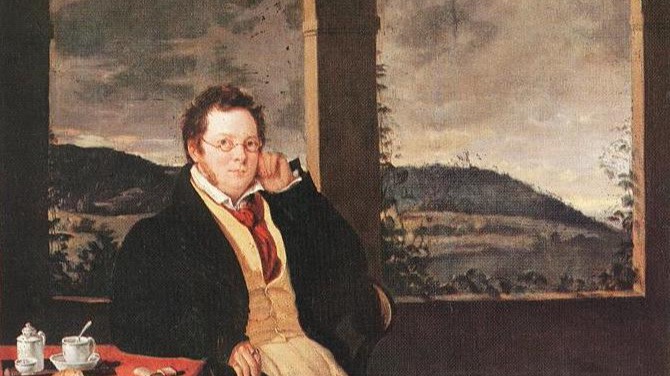Franz Schubert: A Guide to Franz Schubert’s Life and Music
Written by MasterClass
Last updated: Jun 7, 2021 • 4 min read
Franz Schubert was one of the last major composers of the Classical period of European classical music.
Learn From the Best
Who Was Franz Schubert?
Franz Schubert (1797–1828) was an Austrian classical music composer who worked in Vienna in the early nineteenth century. He composed symphonies, sonatas, chamber music, string quartets, and incidental music; however, he is best remembered in music history as a composer of vocal music—particularly secular German-language songs called “lieder.”
Schubert composed at the tail-end of the Classical era, a stylistic period in European classical music that lasted from the 1730s through the 1820s. Along with his fellow Classical-era composers Wolfgang Amadeus Mozart, Franz Joseph Haydn, and Ludwig van Beethoven, Schubert established customs and musical language that classical musicians continue to use today. These composers are sometimes grouped into a collective called the First Viennese School of classical music.
A Brief Biography of Franz Schubert
Franz Schubert's life and career were cut short by illness, but in a short amount of time, he produced a remarkable amount of music.
- Early life in Vienna: Franz Peter Schubert was born in Vienna, Austria, in 1797 and was quickly identified as a child prodigy. Alongside his brothers, Ferdinand and Ignaz, he played viola in the family string quartet. Their father was a schoolmaster who taught them how to play the violin, piano, and organ. Schubert also studied with Antonio Salieri, a renowned composer and musical authority in Classical-era Vienna. Eventually, Schubert would become a teacher himself, educating music students at his father's school.
- Prolific teenage composer: Schubert began composing prolifically at the age of 17. Notable works from his teenage years include his Mass No. 1 (D. 105), nine liturgical works, well over 100 Deutsche lieder (German songs), and a symphony.
- Celebrated vocal music: Schubert's output in his twenties included numerous piano pieces, string quartets, symphonies, and operas. He composed some of the first widely performed song cycles—Die schöne Müllerin (D. 795) and Winterreise (D. 911)—during this era. Despite being personally agnostic, he also wrote numerous liturgical works—the most famous of which is "Ellens dritter Gesang" (D. 839), known for its "Ave Maria" refrain. Attempts at opera, such as Alfonso und Estrella (with lyrics by Schubert's friend Franz von Schober), earned less contemporary recognition.
- Prolific late-life output: Schubert struggled with health problems for much of his life, but he maintained a robust musical output. Toward the end of Schubert’s life, public critics like the influential Ignaz von Sonnleithner took notice of him as an innovator. Important late-career works include the Mass in E-flat major (D. 950), the String Quintet in C major (D. 956), and three piano sonatas. His later attempts at opera—such as Die Zauberharfe (D. 644)—received greater notice than earlier works.
- Early death: Schubert died in 1828 in Vienna at the age of 31 after suffering from a severe illness. You can find his grave at the Vienna Central Cemetery (Zentralfriedhof), alongside those of Ludwig van Beethoven, Johannes Brahms, and Johann Strauss II. His final volume of lieder was nicknamed Schwanengesang, or Swan Song (D. 957). His final string quartet, String Quartet No. 15 in G major (D. 887) also came out posthumously. Schubert is also remembered for his unfinished Symphony No. 8 in B minor (D. 759).
8 Iconic Compositions by Franz Schubert
Curious listeners can begin their exploration of Franz Schubert’s music with these essential pieces.
- 1. "Ellens dritter Gesang" (D. 839): Translated to English as "Ellen's Third Song" and more commonly known as "Ave Maria,” this song has become a classic over the years since Schubert composed it in 1825.
- 2. Wanderer Fantasy in C major (D. 760): Schubert's most technically demanding piano piece inspired the nineteenth-century piano virtuoso Franz Liszt.
- 3. String Quartet No. 14 in D minor (Death and the Maiden): This string quartet, inspired by a poem by Matthias Claudius, is a chamber music standard. Schubert also wrote a German lied based on the same poem.
- 4. "Gesang der Geister über den Wassern": Schubert’s adaptation of a Goethe poem for octet features male vocals and low strings.
- 5. Fantasia in F minor (D. 940): Schubert completed this piano duet for four hands in the last year of his life. It reflects inspiration from Paganini's second violin concerto in B minor, which Schubert had recently heard.
- 6. Trout Quintet: Formally known as the Piano Quintet in A major (D. 667), the Trout Quintet demonstrates a great deal of chromaticism for Classical-era music. Schubert used similar techniques in his piano duets (for four hands) and piano trios (for string accompaniment).
- 7. Four Impromptus for Piano (D. 935): Published posthumously, these four pieces—in F minor, A-flat major, B-flat major, and F minor, respectively—cemented Schubert's reputation as a master of the piano.
- 8. Incidental music for Rosamunde, Fürstin von Zypern (Rosamunde, Princess of Cyprus): Schubert composed these orchestral works as an accompaniment for a play. This helped inspire Romantic-era programmatic music by composers like Hector Berlioz and Robert Schumann.
Want to Learn More About Music?
Become a better musician with the MasterClass Annual Membership. Gain access to exclusive video lessons taught by the world’s best, including Itzhak Perlman, St. Vincent, Sheila E., Timbaland, Herbie Hancock, Tom Morello, and more.
